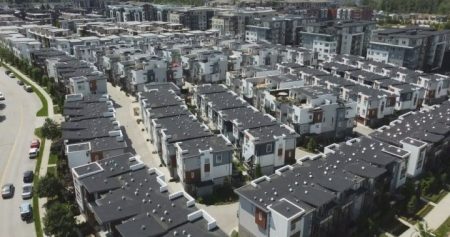Premier Doug Ford recently stated that there is no potential business lined up for the land in Wilmot, Ontario that Waterloo Region has been looking to acquire. Ford was in Kitchener to present the city with $14 million for reaching its housing targets when he was asked about the ongoing land acquisition. Waterloo Region is seeking to purchase 770 acres of mostly farmland in Wilmot, sparking speculation about the potential for an automotive manufacturing plant in the area. However, Ford denied that such a project was in the works and instead emphasized the importance of municipalities assembling land for future business opportunities.
The premier expressed confidence that a business would eventually fill the space in Wilmot, citing the efforts of Minister of Economic Development Vic Fedeli to encourage municipalities to assemble land packages. Ford emphasized the need for communities like Wilmot to have the necessary land for economic development, stating that companies will be attracted to areas where land is readily available for development. The region supported Ford’s comments, noting that they have had to turn away inquiries from companies seeking large parcels of land for development in recent years, resulting in missed economic opportunities for Waterloo Region.
Waterloo Region defended the land acquisition plans, stating that the expropriated land would offer a “once-in-a-generation” opportunity for significant investment, job creation, and increased tax revenue. The region highlighted the site’s competitiveness for attracting international investment, proximity to transportation infrastructure, existing skilled workforce, and potential for future development and investment. Despite concerns raised by local landowners, the region maintained that it will continue working towards fair and amicable agreements with the affected parties while keeping the details of the land purchase confidential.
Representatives of the landowners expressed dismay over the sudden prospect of expropriation, with many being long-term farming families who had not anticipated facing development pressures on their valuable farmland. Alfred Lowrick, speaking on behalf of a group of landowners, criticized the lack of formal notification, meetings, and consultations about the land acquisition process, which caught many residents off guard. The Township of Wilmot, where the land is located, remained relatively quiet about the property purchase but emphasized its role in advocating for fair and equitable processes on behalf of landowners, ensuring their concerns are communicated to the region.
Concerns over the land acquisition process have raised questions about transparency and community engagement, with some residents feeling blindsided by the sudden push for expropriation. The Township of Wilmot and the Region of Waterloo have faced criticism for not adequately involving stakeholders in the decision-making process and for the lack of formal notifications and consultations with affected landowners. Moving forward, there is a call for greater transparency, dialogue, and respect for the concerns of residents who may be impacted by the proposed land purchase and development plans in Wilmot. Overall, the situation highlights the complexities of balancing economic development opportunities with the interests and needs of local communities.















